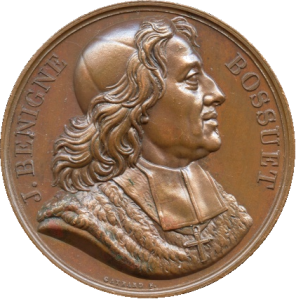The other day I stumbled across this piece from last year, which I’m surprised I missed at all; the Bozell Jr. Fan Club isn’t a big one, and (I’d hope to think) we’re always eager to take in new members. Although I don’t share her distaste for what what she calls the “banning, regulating, and censoring” that would be required to bring about the sort of polity Bozell desired in his middle phase, I share her view of Bozell’s broader relevance, and I’m very glad that someone has found a soft spot for Bozell.
I’ve marveled many times that Kelly’s biography was brought out by ISI as a sort of “movement conservative” book, and even more that it was blurbed by Rich Lowry—this, a pretty thorough indictment of National Review, and of Buckleyism generally, about a man who wrote that the U.S. Constitution “has not only failed; it was bound to fail”; that “the architects of our constitutional order built a house in which secular liberalism could live, and given the dominant urges of the age, would live. The time has come to leave that house and head for home.”
Eve is quite right about the “huge overlap” (though perhaps not where she sees it) between Bozell’s Triumph-era writings and those of many of our disgruntled Catholic contemporaries. I can’t recommend enough either of the editions of his collected writings, Mustard Seeds. Many of the articles, such as the one below about pro-choice advocacy on television, would’ve been as relevant had they been written yesterday.
The Catholic response? There has been none so far that I know of beyond the suggestion, by columnist Paul Hallett for one, that Catholics demand “equal time” on PBS. That may be a good idea—as a ploy. But it will come to aught, even as a ploy, if left to the sponsorship of columnists. It will need, at the very least, a stern initiative by the Catholic bishops.
What? Equal time for Life? To argue politely, democratically, with Death? This is the radical, definitive demonstration of the upside-downness of the American public order—and not just in its forms, its political game rules, but in its substance—that we should be led even to think of settling for such a bargain. Life is not an “issue” about which Catholics and their moral associates have a point of view that, in fairness, deserves airing. It is not simply the object of a moral imperative. Life is the very stuff of existence. It is an act, the divine act, that makes being be. I am Life, said the Lord: and the invitation to participate freely in Life, that the Lord may be glorified, is His supreme favor to man. To thwart the favor, to merchant Death, is an act that cannot be measured demographically, or biologically, or psychologically—not even morally. It cannot be measured at all. It is, itself, Death. What can be measured, and what in our time will be the measure of the Catholic people, is how those who now own the favor of Life fight Death.
Or again, in another article that originally ran in the NYT in 1971:
Is demography a mortal sin? I say it is, although a distinction must be made which may let off some of its practitioners with the sort of venial blemish that can be cleaned up in purgatory. I mean it is possible for a man to be more or less innocently fascinated with his charts and statistics on birth and death rates and migration trends, even with (predictably wrong) projections of population explosions and deplosions. But this kind of demographer is an odd bird; he is outnumbered by far by colleagues who wish the fascinating statistics to be transposed into a judgment about the rightness or wrongness of making new people. This generality of demographers, I am afraid, will have to burn.
Thanks to Eve for helping to revive his memory.
